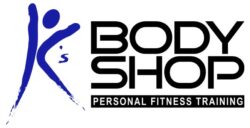What good is losing excess body fat if you can’t keep it off? In order for weight loss to be meaningful, it needs to be permanent! I’m not going to go into the “what you should be eating” or “when you should be eating” or “how much and how often you should be eating” in this post. This is just going to be about a simple tool that can help you learn about what your current eating habits truly are, and possibly uncover potential trouble spots in your nutritional intake. Knowledge is power, and you can change only what you know (I hope that made sense). The best predictor of weight loss success is keeping track of what and when you are eating so you gain the necessary knowledge to make the changes that will help you get the results that you want. And if you decide to hire a professional Personal Trainer or Licensed Nutritionist, keeping a food intake journal is the first thing that you’ll be asked to do.
Here are a few food tracking tools that you may find helpful:
Nutrition Software
These programs are typically computer based, but some can be accessed on the internet via any means that gets you online. Some are more user friendly or have different features than others, such as allowing you to track your physical activity in addition to food intake. Some are customizable, some are free, and others require a one time fee or monthly subscription.
My personal favorite (and the one that I use myself) is FitDay. I bought the PC based program several years ago (it has more features than the free online version) and it is very user friendly, allows you to track physical activity, emotional status such as mood, energy level, stress, a diary to use as a journal, etc. It can be customized and you can build meals instead of having to enter every. single. ingredient. for things that you eat on a regular basis. It also keeps track of calories, macronutrients (carbs, protein, fat), and micronutrients such as individual vitamins and minerals. The program is only $29.95 and also allows you to create and print reports – a handy feature that my clients use to share what they’ve been doing with me, and I use myself to give my own nutrition reports to my Doctor and Nutritionist for their records. If you aren’t interested in report printing and mood tracking, you can track all of your food intake info online for FREE!
DietMaster 2100 is another popular PC based program which can be downloaded for $24.95 (standard edition). The exercise portion of the software is not as full featured as many others, but it has a huge food database so there’s less of a need to add custom foods. If all you’re interested in is tracking nutrition, this is one of the best software programs around.
Food Tracking Apps
MyFitnessPal is a free app that can be used on any smart phone. This app allows you to track both food intake and physical activity – and is completely FREE. I haven’t used this myself, but have clients that really like it and prefer having an easy to use app on their phone where they can enter data as it happens rather than having to remember everything to log into a computer later. When it comes to smart phone apps, this one seems to be everyone’s favorite, hands down.
FitDay now has a smart phone app for $1.99 that allows you to track on the go, which you can use with to upload to your free online account.
Paper & Pencil Journal
Some of my clients aren’t comfortable using smart phones or computers, particularly a few of my elderly folks. Other people are concerned about privacy issues with online sites where you are entering personal information – as well as every single thing that you eat. For these folks, there is still the good ol’ paper and pencil journal. While this method doesn’t do all of the calculating of calories and nutrients, it can still be useful if done properly. Track the following information every time you eat: Time of day, each food that you eat (that means every ingredient), and the amount of each ingredient. Since many overweight people are emotional eaters, it can also be helpful to document your moods such as stress, fatigue, happy/sad, energy, hunger, whether you are eating out or preparing your own meals, who you are eating with, etc. Look for patterns or trends that correlate to weight gain or loss, mood changes, fatigue, etc.
There are many more software programs and smart phone apps than the meager few that I mentioned, but give food intake tracking a try if you are interested in improving your health. It can be helpful whether you’re trying to lose body fat, increase muscle mass, or figure out how much calcium you’re getting in your daily diet. I started doing it myself several years ago when training for my first marathon and continue to do it to this day. It has helped me dial in my sports nutrition for running ultra marathons and it’s helped my nutritionist figure out some of my food intolerances, too. It doesn’t take long to do and can save you time, money, and frustration in the long run since you’re more likely to achieve your weight loss goals much sooner.
Here’s to your health!
